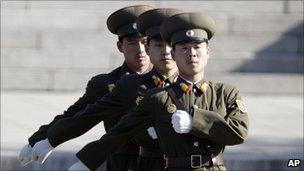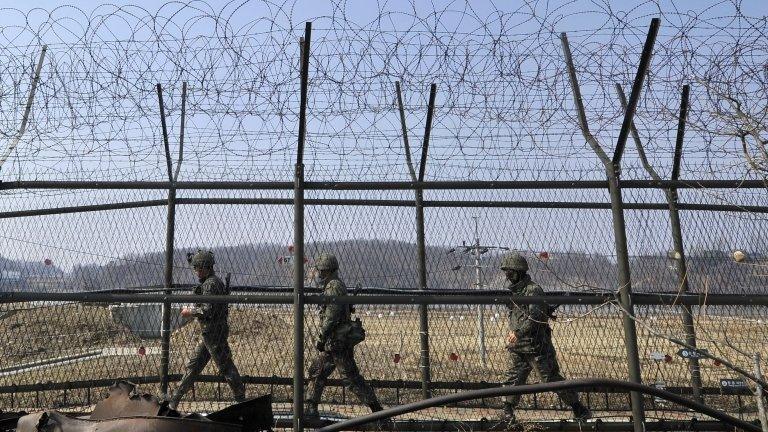North Korean arrivals in South 'surge'
- Published

The two Koreas remain technically at war following the 1950-53 Korean War
The number of North Koreans arriving in the South has surged because of economic hardship, passing 20,000 at the weekend, South Korea says.
Until 1999 fewer than 1,000 North Koreans had made the journey to the South, but an influx began after famine hit in the mid-1990s.
In 2009 a record 2,927 North Koreans defected to the South, Seoul's Unification Ministry said.
The Koreas remain technically at war in the wake of the 1950-53 Korean War.
The border between the two neighbours is heavily fortified, so most new arrivals make a long and difficult journey via the northern border with China.
China has a repatriation agreement with Pyongyang, so North Koreans must make their way to a third country in order to move on to South Korea.
Once there, they are given resettlement training and help with finding housing by the South Korean government.
Almost half of the arrivals have come in the last three years.
The 20,000th person to arrive in South Korea was a 41-year-old woman who was accompanied by her two sons, the Unification Ministry said.
She arrived over the weekend after making the journey via China, where tens of thousands of North Koreans are thought to be living in hiding.
North Korea has relied on food aid since the famine in the mid-1990s. Its economic woes have been blamed on mismanagement and natural disasters.
South Korea used to send large amounts of food aid but this has slowed since President Lee Myung-bak took office in 2008. He says the provision of food aid must be linked to progress on denuclearisation.
- Published5 March 2015

- Published26 May 2010